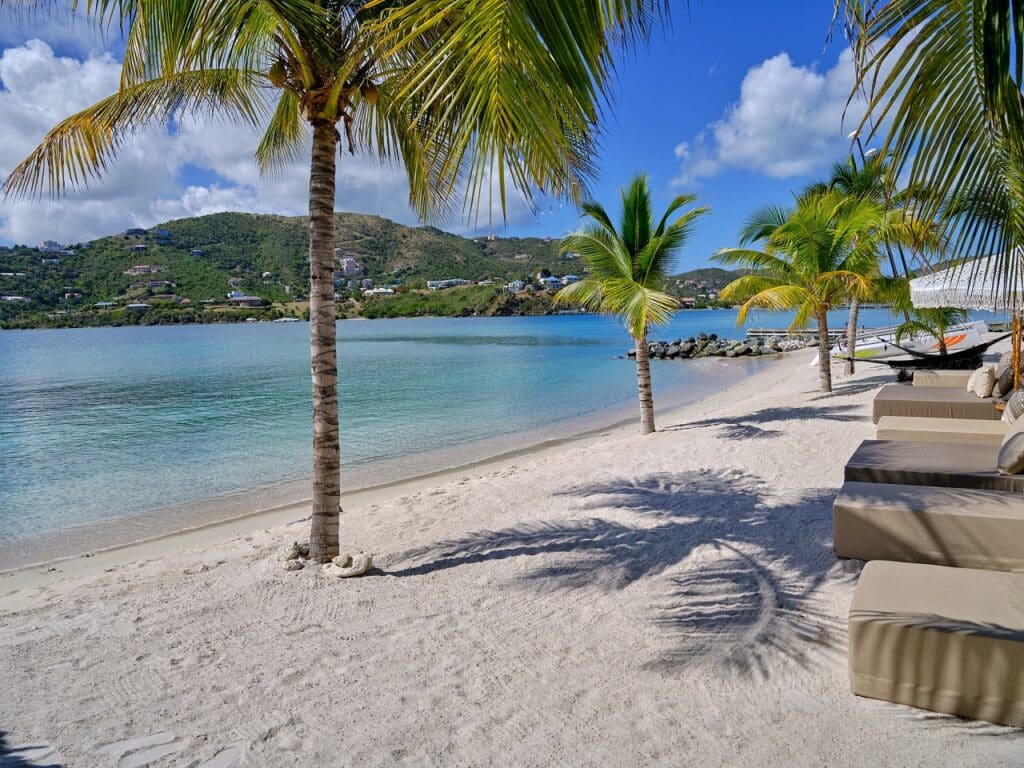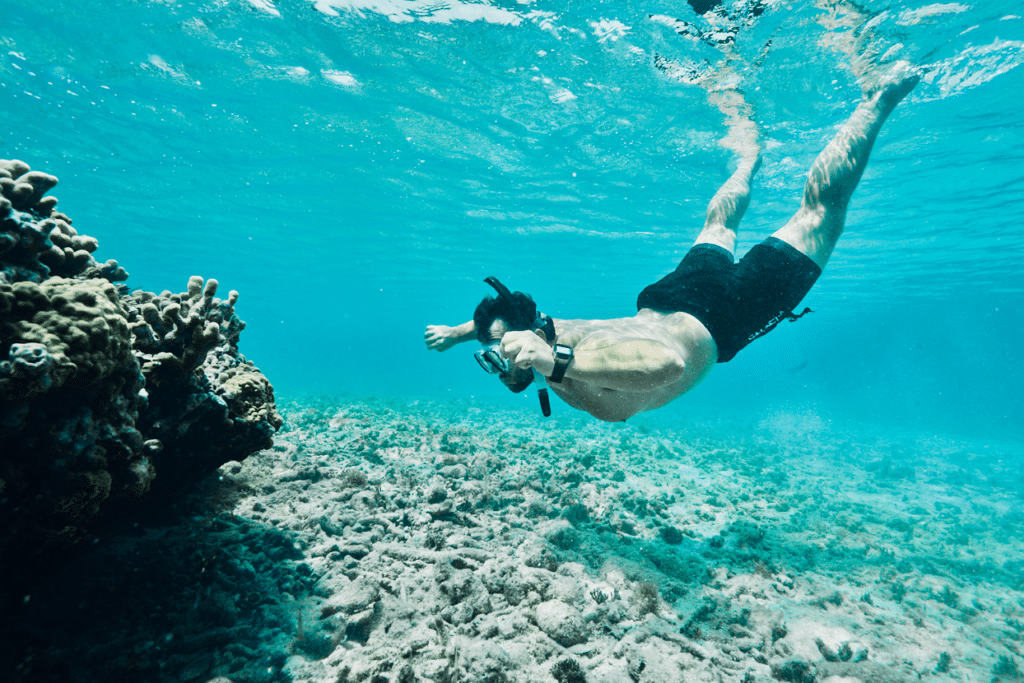Ethical ecotourism in the Caribbean involves traveling with the intention of preserving the environment while supporting local cultures and traditions. This includes everything from choosing eco-friendly accommodations to dining at restaurants that serve locally sourced food.
Friendly locals, pristine beaches, and vibrant coral reefs are just a few of the things that make a trip to the Caribbean so memorable. When traveling to the Caribbean, the following tips will help you to preserve these stunning places and leave the islands healthier and stronger than they were when you arrived.

Tips for Responsible and Sustainable Travel in the Caribbean
Traveling to the Caribbean offers you the chance to immerse yourself in a colorful array of cultures with vibrant music, art, and local cuisine. Whether you go to the British Virgin Islands for a wellness retreat or explore Dominica, a nature island situated in the heart of the Eastern Caribbean archipelago, there are many ways to travel responsibly in the Caribbean. If you already have your ticket in hand, here are some ways to have a positive impact while spending time on the islands of the Caribbean Sea.
Stay at Sustainable and “Green” Hotels
Staying at an eco-conscious hotel is an excellent way to practice sustainable tourism. Some destinations in the Caribbean have chosen to adopt sustainable practices such as designing their facilities in harmony with the natural environment and using renewable energy.
For instance, The Aerial, BVI, our health and wellness resort, has structures made with stones and shells from the island itself. It is considered to be one of the most ecologically friendly properties in the Caribbean. In addition, we offer the chance to participate in ecotourism activities such as hiking, wildlife tagging, and reef clean-ups. These kinds of activities help nature lovers learn about ecosystems and environmental issues in a very hands-on way.
Visit Protected Areas and Participate in Ocean Ecotourism Activities
The Caribbean is overflowing with biodiversity. From dazzling coastlines to coral reefs, mangrove forests, and a colorful marine environment, top Caribbean ecotourism destinations offer plenty of eco-friendly activities to add to your itinerary.
Today, many areas in the Caribbean are managed by governmental agencies in an effort to protect the natural environment. Some of these protected areas allow tourists to visit, appreciate, and learn about the region’s ecosystems while staying conscious of the individual “footprint” they have on the area.
The following are popular ways to explore the Caribbean in an eco-conscious way:
- Sail in a wind-powered sailboat.
- Participate in coral reef cleanups.
- Go on a boat tour to view marine and coastal wildlife.
- Stargaze in a remote spot away from city lights.
- Participate in beach and ocean cleanups.
- Hike mindfully along the coast and visit national parks to learn about marine coastal ecosystems.
- Visit nature reserves with an expert guide and learn about rare or endangered plants and animals. One of the oldest marine reserves is the 6672-acre Bonaire National Marine Park, which is home to coral reefs, sea grass, and mangroves.

Eat Fresh, Local Meals
Island-to-plate or island-to-table cuisine is making waves in the Caribbean. From sweet tropical fruits to succulent seafood caught right off the coast, eating local food is an excellent way to reduce your carbon footprint and support the local community. Eating locally minimizes the energy and resources needed for the food’s transportation. It also allows you to enjoy the area’s delicious flavors and culinary customs.
Eating at “mom-and-pop” restaurants rather than large chain restaurants is another effective way to make your trip as ethical and eco-friendly as possible. Family-owned restaurants typically serve fresh food made from locally sourced ingredients. This has two important benefits: (1) The food is more likely to be nutritious; and (2) eating at these smaller establishments supports local farmers, families, small businesses, and the local economy.

Be Mindful of Personal Waste
While traveling, it’s easy to become complacent with personal waste management practices. Purchasing a single-use water bottle can be convenient while out on a hike or participating in other activities during an all-day outing in the Caribbean. However, opting for washable options while traveling is a more responsible approach. At The Aerial, we give all of our guests a complimentary stainless steel water bottle during their stay that they can take home with them when they leave.
How can you be mindful of the personal waste you generate while traveling? Instead of reaching for plastic bottles and packaging, opt for reusable items such as water bottles and tote bags. Avoid single-use plastics such as cups and utensils by taking your own. Lastly, lower your energy consumption by walking or riding your bike around the island where you are staying and only use electricity and powered transport when you really need to.
Sustainable Travel Makes a Difference
The Caribbean islands are popular international travel destinations for visitors from all over the world, thanks to their stunning beaches, lush rainforests, and the wide variety of activities on offer. While tourism generates a significant amount of revenue for islands in the Caribbean—especially in winter—large flocks of tourists, the expansion of cruise tourism, and the development of large-chain hotels pose serious environmental risks. These impacts range from plastic pollution in the waters around coastal tourist destinations to a higher demand for water and energy.
So, what’s the solution? The ideal would be to encourage tourism for its economic benefits while reducing (or ideally eliminating) any negative effects on the environment. Implementing the tips provided in this article will allow you to support the tourism sector while helping—rather than harming—the local community and environment.
Travel Consciously and Responsibly
When planning your next Caribbean vacation, make your trip a win-win by engaging in ecotourism activities, staying in eco-friendly accommodations, taking reusable cups and utensils, and eating fresh local meals. Participating in conservation efforts and projects allows you to positively impact the environment and leave this beautiful region in an even better condition than it was when you arrived.
Before you head to the Caribbean, make a list of vacation activities that can help preserve this region’s incredible natural beauty. Making conscious decisions and traveling in harmony with the environment will ultimately add a deeper level of appreciation to your travel experience.